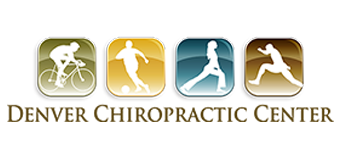Here is today’s 1-Page Health News:
Health Alert: Low Levels of Air Pollution Can Increase Risk of Cardiac Arrest. New research suggests that for every ten microgram per cubic meter increase in fine-particulate matter (air pollution from sources such as motor vehicle exhaust or bushfires), an individual’s risk for cardiac arrest increases by 1-4%. The Lancet Planetary Health, January 2020
Diet: Is Weekend Eating Making You Fatter? Maintaining a regular eating schedule could be a key for preventing obesity. Among a group of 1,106 university students, researchers observed that those whose eating schedule on weekends was different than on weekdays tended to have a higher body mass index than students with a more consistent eating schedule. Lead author Dr. Maria Izquierdo Pulido explains, “As a result, when intake takes place regularly, the circadian clock ensures that the body’s metabolic pathways act to assimilate nutrients. However, when food is taken at an unusual hour, nutrients can act on the molecular machinery of peripheral clocks (outside the brain), altering the schedule and thus, modifying the body’s metabolic functions.” Nutrients, January 2020
Exercise: High and Low Exercise Intensity Influences Brain Differently. Among a group of 25 male athletes, researchers observed that low-intensity exercise stimulated the parts of the brain associated with cognitive control/attention, while high-intensity exercise increased activity in the areas of the brain associated with emotional processing. Brain Plasticity, January 2020
Chiropractic: Sleep Issues and Lumbar Stenosis. Spinal stenosis is a debilitating condition associated with the degeneration of the spine, which can have a wide range of symptoms including back pain, leg pain, numbness, and tingling in the legs as well as reduced physical function. A new study involving 148 lumbar spinal stenosis patients found that 63.5% were poor sleepers and that poor sleep was associated with both worse quality of life scores and functional disability. Clinical Spine Surgery, January 2020
Mental Attitude: You and Your Baby Really Are on the Same Wavelength. Using dual-brain neuroimaging, researchers observed that baby and parent brain activity rises and falls in sync while sharing toys and maintaining eye contact. Psychological Science, December 2019
Wellness/Prevention: Caring for Your Newborn. Completing a “new parents” class and asking nurses to help with basic baby care while in the hospital can help you prepare for taking care of your newborn at home. Before discharge from the hospital with your newborn, you should know how to do the following: handle a newborn and support your baby’s neck; change your baby’s diaper; bathe, dress, and swaddle your baby; feed and burp your baby; clean the umbilical cord; use a bulb syringe to clear nasal passages; take your newborn’s temperature; and soothe your baby. Department of Health and Human Services, January 2020


